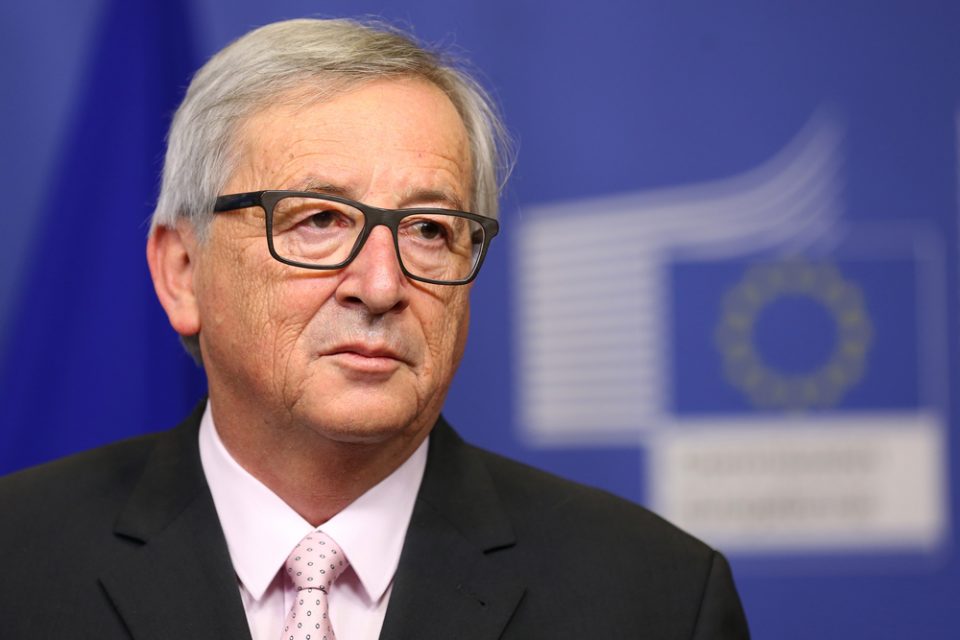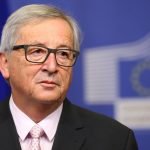Meet the next President of the European Commission

David Cameron made it very clear that he did not believe Jean-Claude Juncker, the former Prime Minister of Luxembourg, to be a suitable person to head up the European Commission. Cameron’s criticisms revolved around his unashamed federalism. “Jean-Claude Juncker has been at the heart of the project to increase the power of Brussels and reduce the power of nation states for his entire working life. He’s not the right person to take this organisation forward,” he said.
Mind you, whoever had been chosen as Commission president would inevitably have been a supporter of the construction of the United States of Europe. To do otherwise “would be akin to cardinals electing a non-Catholic as pope”, claimed the former Belgian Prime Minister Guy Verhofstadt, another arch-federalist.
Besides Juncker’s federalism, there is the issue of his liking for a tipple or two – or perhaps even more. Our press have labelled him “Junck the drunk” and have unearthed plenty of stories to substantiate their allegations.
However, what has been less widely reported is his deviousness. Honesty must go out of the window if it stands in the way of the great European project. During the height of the Eurozone Sovereign Debt crisis which nearly forced Greece out of the Eurozone in 2011, Juncker said: “When it becomes serious, you have to lie.” His remarks to Gordon Brown about the Lisbon Treaty were equally contemptible: “Of course there will be transfers of sovereignty. But would I be intelligent to bring attention to that?”
Although Juncker’s supporters claim that he has been democratically elected to the post of Commission President, Juncker himself seems to have nothing but contempt for the democratic process. Commenting on the introduction of the European single currency in 1999, Juncker said: “We decide on something, leave it lying around and wait and see what happens. If no one kicks up a fuss, because most people don’t understand what has been decided, we continue step by step until there is no turning back.”
His observations on the Convention which drew up the European Constitution in 2003 illustrate his preference for behind-the-scenes stitch-ups rather than fair and honest debate: “The Convention has been touted as the great democracy-show. I have not seen a darker darkroom than the Convention.”
Juncker epitomises the classic EU position that democracy is only to be tolerated if produces the “right” result. When the French were given a referendum on the European Constitution in 2005, he said, “If it’s a ‘Yes’, we will say ‘on we go,’ and if it’s a ‘No’ we will say ‘we continue’,” adding, “Those countries that vote ‘No’ must vote again… to obtain the right answer.”
At least he is willing to own up to his contempt for democracy. Commenting on EU monetary policy in 2011, he said: “Monetary policy is a serious issue. We should discuss this in secret, in the Eurogroup [the main forum for managing the European single currency] … I’m ready to be insulted as being insufficiently democratic, but I want to be serious … I am for secret, dark debates.”
Furthermore, Juncker is likely to kow-tow to Berlin. “I have always felt particularly close to Germany – since my earliest youth”, he admitted in November last year. He was awarded Germany’s “Federal Cross of Merit” in 1988 when aged only 33, thanks to being a protégé of the former German Chancellor Helmut Kohl. It was Kohl who stated in a speech in 1996 that, “we have no desire to return to the nation state of old. It cannot solve the problems of the 21st Century… If there is no momentum for continued integration this will not only lead to standstill but also to retrogression.”
Juncker appears to enjoy a warm relationship to the present Chancellor too, whatever her alleged misgivings about him. “You have more than lived up to the hopes placed in you in 1988,” said Angela Merkel on November 8, 2013, as she awarded him the second highest national award – the “Grand Cross of the Order of Merit”.
With such a man about to assume the most powerful position in Brussels, the likelihood of any meaningful clawback of power from the EU looks ever more remote. Can we believe a word he says? He recently said, “I don’t want to be described – as I was – as an arch-federalist. I don’t know what this really means. As a representative of a very small nation, I know what nations are about and how important member states really are”, but he also told the Euronews channel in April, “I would like to unite and reignite Europe.” Which is the real Juncker?
Moreover, will David Cameron stick to his words and throw his weight behind an “out” vote if at the end of the day, Juncker refuses to hand any meaningful powers back to our Parliament? It still seems hard to imagine, but the appointment of this devious drunken federalist should be sufficient to remind the rest of us that if he is the democratic choice of the peoples of Europe, we must exercise our democratic choice in 2017 and leave them to it.
(with thanks to the Gatestone Institute http://www.gatestoneinstitute.org/4389/european-commission-president and to the German Foreign Policy website )




